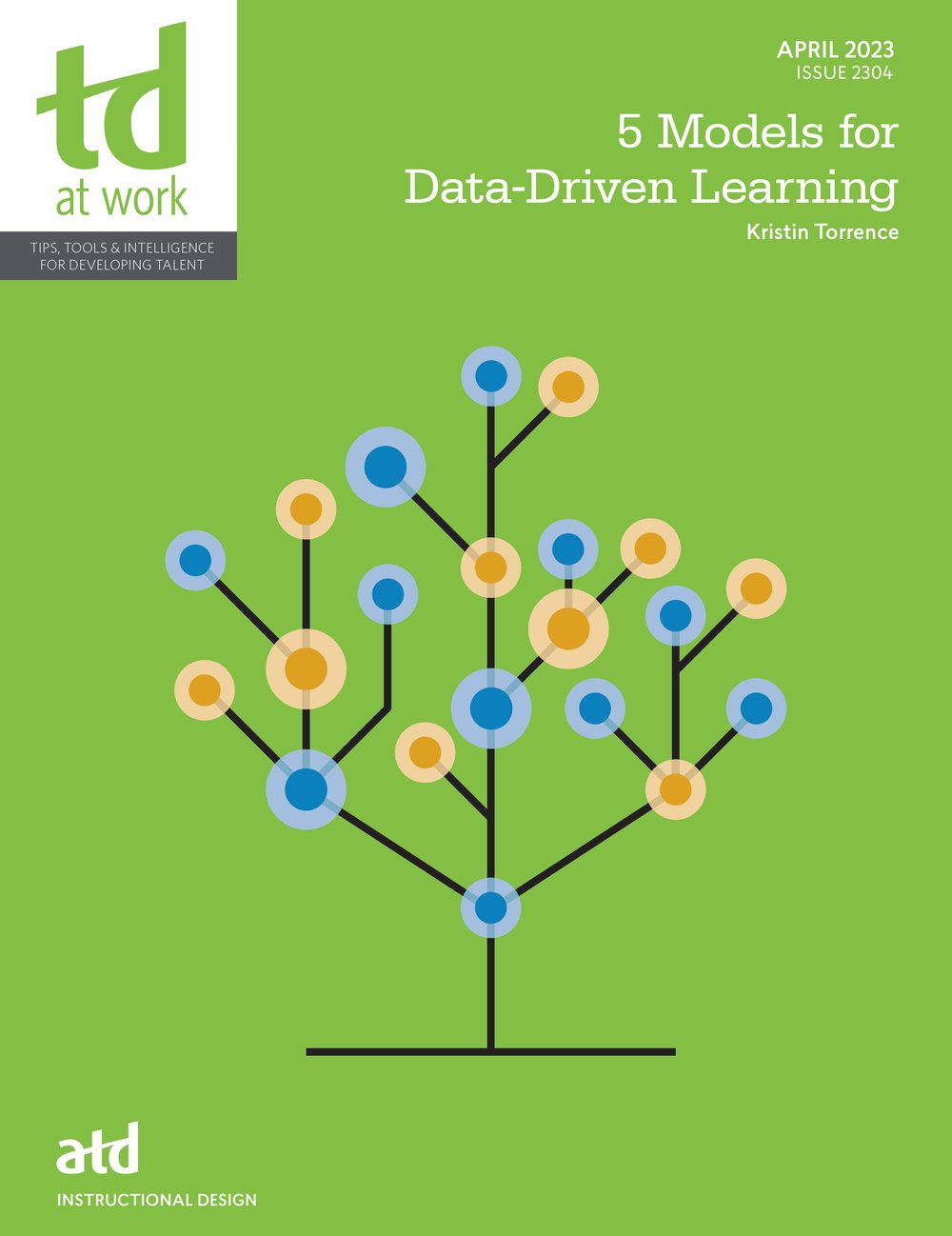5 Models for Data-Driven Learning

Learning designers are no stranger to using models—consider ADDIE, SAM, and Merrill’s First Principles, which are widely implemented in the L&D industry. But a less commonly discussed practice is constructing models that help inform design decisions for the learning solutions we create.
In this issue of TD at Work, Kristin Torrence:
- Outlines five L&D models
- Describes how the models facilitate an evidence-based approach to design and assessment
- Walks readers through how to develop each model in practice
- Presents case studies for using the models for data-driven decision making
The Tools & Resources in this issue are a modeling preparation checklist and a bonus competency model template.

Kristin Torrence is the head of learning engineering at Talespin, where she focuses on applying learning sciences, instructional design, and data science practices to design, instrument, and validate extended reality learning solutions. Her background is in cognitive science, game-based
learning, and instructional design. She is particularly interested in the intersection of learning science, extended reality, and learning analytics.
